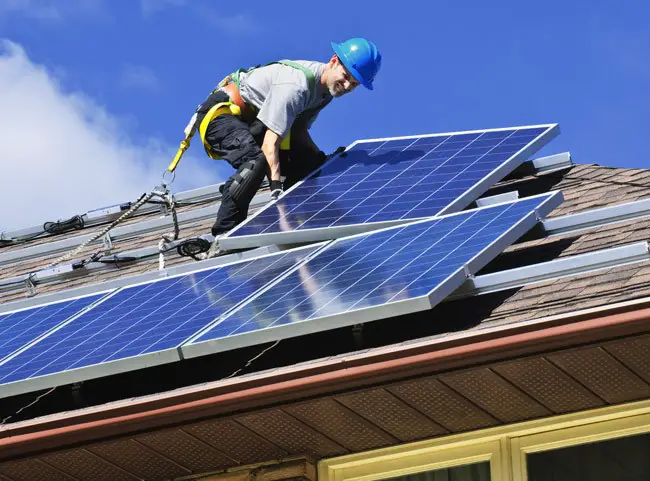
The light is fading for one of two solar-energy initiatives trying to get on Florida’s 2016 ballot.
The “Floridians for Solar Choice” coalition, which remains about 400,000 petitions short of qualifying for the 2016 ballot and is in the midst of a contract dispute with a petition-gathering firm, announced Thursday night it has started to explore options for appearing on the 2018 ballot.
Stephen Smith, executive director of the Southern Alliance for Clean Energy, a key supporter of the coalition, on Friday called the decision “a strategic pivot.”
“We want to make sure everyone is aware, we’re not trying to deceive anybody, it’s just reality and people can count the numbers,” Smith said. “Campaigning is as strong as ever, and it’s not going away.”
Supporters of the initiative — which would allow businesses to generate and sell up to two megawatts of solar power to customers on the same or neighboring properties — continue to focus on gathering petitions for 2016.
But that will change Dec. 30, Smith said.
An end-of-the-year deadline has always been in place, he said, as the coalition believes county supervisors of election need about a month before the state’s Feb. 1 petition deadline to verify the submitted signatures of voters.
“It’s a hurdle, I’m not going to dispute that,” Smith said. “We’ve got a phenomenal volunteer group working for us, but to collect what would be about 70,000 signatures a week is not impossible, but it’s a daunting task.”
The announcement hasn’t caused the coalition behind a competing, utility-backed solar initiative to declare victory. That coalition is known as “Consumers for Smart Solar.”
“From day one, our objective has been to promote a plan to advance solar energy while protecting consumers,” Consumers for Smart Solar spokeswoman Sarah Bascom said in a release. “Their apparent failure to make the ballot does not change our objective. We will continue to gather signatures to place our Smart Solar amendment on the ballot and will vigorously advocate its passage.”
The better-financed Consumers for Smart Solar proposal would generally maintain the status quo in allowing Floridians with solar equipment on their property to sell energy to power companies.
Consumers for Smart Solar had raised $5.9 million as of Nov. 30, with the state’s four major private utilities — Duke Energy, Florida Power & Light, Gulf Power and Tampa Electric— directly accounting for $3.5 million of that total.
Floridians for Solar Choice, which has received the bulk of its funding from a political arm of the Southern Alliance for Clean Energy, had pulled in about $1.49 million.
Backers of both amendments must submit 683,149 valid signatures by Feb. 1 to get on the November 2016 ballot.
As of early Friday, Floridians for Solar Choice had submitted 272,444 valid signatures. The Consumers for Smart Solar proposal was up to 412,997 valid signatures.
Smith said the Floridians for Solar Choice proposal could qualify in 2017 for the 2018 ballot, as the signatures already collected remain valid for 24 months.
The blog FloridaPolitics.com reported Thursday that a payment dispute with the signature-gathering firm PCI Consulting has tied up about 200,000 petitions that have already been collected. Smith said he expects the dispute will be settled early next year.
While the 2018 election cycle appears more realistic for the initiative to get on the ballot, the change could pose more problems in winning the required 60 percent support from voters for passage.
Floridians for Solar Choice has sought to tie its amendment to the presidential election cycle, which historically attracts more Democrats, along with younger voters, to the polls.
“There are definitely advantages running this campaign in a presidential year,” Smith acknowledged.
–Jim Turner, News Service of Florida





























scoff the cuff says
Interesting timing, settling the dispute next year. Who ‘owns’ PCI Consulting, whose cousin is on the board?